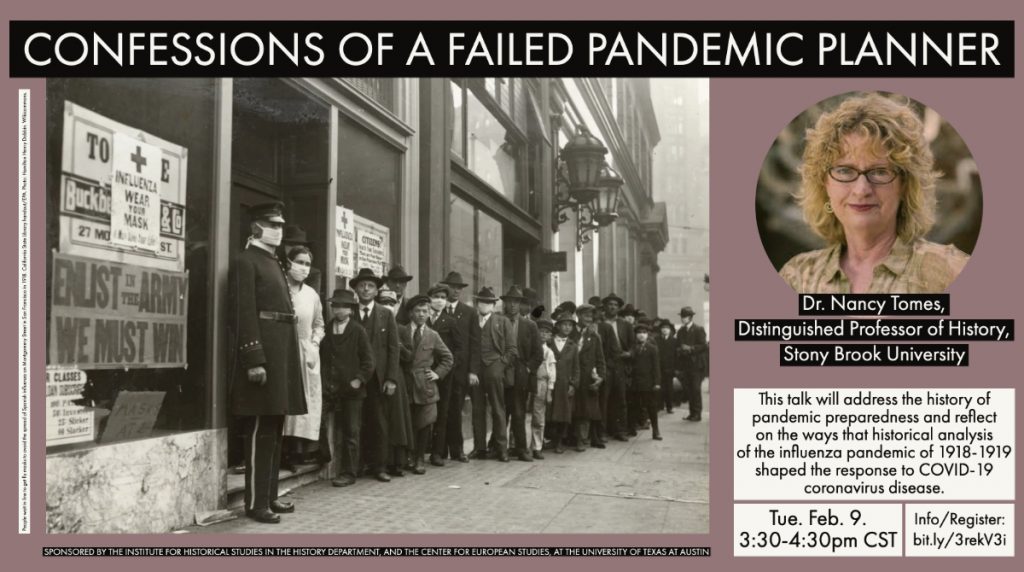Institute for Historical Studies, Tuesday February 9, 2021
This talk will address the history of pandemic preparedness and reflect on the ways that historical analysis of the influenza pandemic of 1918-1919 shaped the response to COVID-19 coronavirus disease.
Dr. Nancy Tomes is a Distinguished Professor of History at Stony Brook University, and a Research Affiliate at the Institute for Historical Studies in 2020-2021. Dr. Tome’s research interests have ranged widely over the past four decades, but almost all her work has focused on the intersection between expert knowledge and popular understandings of the body and disease. She is the author of several book publications including A Generous Confidence: Thomas Story Kirkbride and the Art of Asylum Keeping (Cambridge University Press, 1984; paperback, Penn Press, 1994), Madness in America: Cultural and Medical Perceptions of Mental Illness Before 1914, with Lynn Gamwell (Cornell University Press, 1995), The Gospel of Germs: Men, Women and the Microbe in American Life (Harvard University Press, 1998), and Remaking the American Patient: How Madison Avenue and Modern Medicine Turned Patients into Consumers (UNC Press, 2016); plus two co-edited collections, Medicine’s Moving Pictures: Medicine, Health, and Bodies in American Film and Television, with Leslie Reagan and Paula Treichler (University of Rochester Press, 2007), and Patients as Policy Actors, with Beatrix Hoffman, Rachel Grob, and Mark Schlesinger (Rutgers University Press, 2011); and a website, Medicine and Madison Avenue, on the history of health-related advertising, developed in collaboration with Duke University Library’s Special Collections. Learn more about her work on her faculty profile page.
The views and opinions expressed in this article or video are those of the individual author(s) or presenter(s) and do not necessarily reflect the policy or views of the editors at Not Even Past, the UT Department of History, the University of Texas at Austin, or the UT System Board of Regents. Not Even Past is an online public history magazine rather than a peer-reviewed academic journal. While we make efforts to ensure that factual information in articles was obtained from reliable sources, Not Even Past is not responsible for any errors or omissions.




